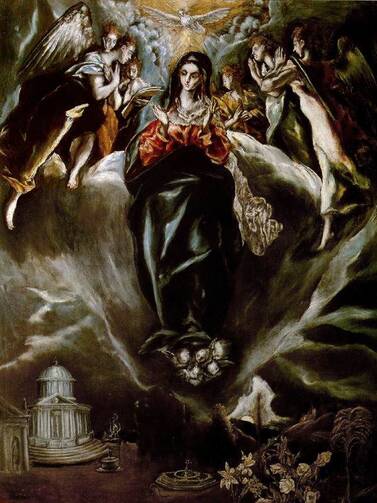Who among us hasn’t wanted a recount at some time in our lives? In presidential elections, every four years—let’s be generous—about half of the country would like a do-over. It’s in the nature of elections, like high school athletics. About half of the teams in the state lose each week, don’t they? When I was a debater in high school, I didn’t give a second thought to the debates we’d won, but I’d mull over those we’d lost, thinking about what I might have said.
One of the hardest parts about growing old is living with regret, mulling over something that happened a long time ago in your life. You want to let it go, but it won’t release you. In confession, people often come, when the moment is right, to confess to a sin they’ve never shared. The relief is often palpable.
Sadly, sometimes, someone will return to a sin they confessed years ago, saying that the memory still troubles them. I remind them that being forgiven is a promise Christ made to them through the ministry of the Church. Feeling forgiven is an additional grace, for which we must pray.
Sometimes I mention how right, it seems to me, in this age, that the Agnus Dei concludes not with another request for pardon but with the heartfelt cry for peace. “Lamb of God, you take away the sins of the world, grant us peace.” Young people, a little breezily, preach peace. Old people long for it, most of all in their own hearts.
Why can’t it have been different? Why did I respond as I did? Why did I become the person who I became? Regret is a very real acknowledgement of what we call “the temporal consequences of sin,” which purgatory purges. We don’t simply stand apart from God, something that can be reconciled by conversion and confession; we stand as a different person in time, someone who took a different path. We became someone other than who we should have been. How is that undone, save by years of prayer and penance on this side of the grave, and by God’s transforming mercy on the other?
Small wonder that we long for a recount, a cosmic—or at least a biographical—do-over. We can’t change the past, but we can change who we have become because of the past. We can turn and begin to walk in another direction. Still, the sorrow lingers, shedding its doleful grace. The whole human race comes to God with the burden of sin, with some desire that all could begin again.
In Mary, the Immaculate Conception, it has. She is that one spot in all of humanity that responded fully, and without sin, to the initiative of God in her son and savior, Jesus the Christ. Certainly Christ was without sin. In his divine nature as Son, he could not depart from the will of his Father; in his human nature as Son he did not. In both natures, Christ remains the initiative of God. He is the creator come among us in the flesh. He is the savior. It is his Spirit that quickens us.
Long before the dogma of the Immaculate Conception and the establishment of the solemnity, the Church had taught that Mary was without sin.
“Where is this in the Bible?” The skeptic doesn’t really believe in the Bible either, but will quote any authority to establish the one that matters most, personal opinion.
The saint responds, “Most every question that one can put to the scriptures isn’t answered by the scriptures, not without reading into them. The question is whether one reads-in correctly, with the community of the Church, or in error, by one’s self.
We don’t speak of Mary as immaculate because we have sent a team of investigators, back through time, to watch her every act. We don’t speak of Jesus as sinless by that route. We say that God’s offer to us in Christ must have been flawless because it was the work of God. And we say that our response to God in Mary, humanity’s answer to God, must have been whole and complete in at least one creature who is nothing more, or less, than God’s creation. Confidence in God makes Jesus sinless for us. Hope in humanity, in ourselves, does the same for Mary.
Bulgakov wrote:
The Mother of God, since she gave her son the humanness of the second Adam, is also the mother of the race of human beings, of universal humanity, the spiritual center of the whole creation, the heart of the world. In her creation is utterly and completely divinized, conceives, bear and fosters God.
In a word, Mary Immaculate is humanity’s great recount. The one that counted.








